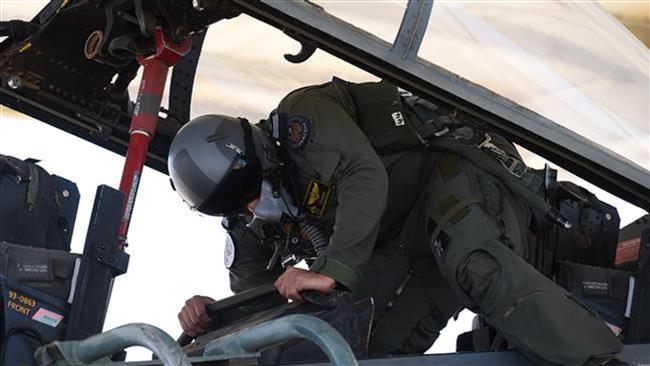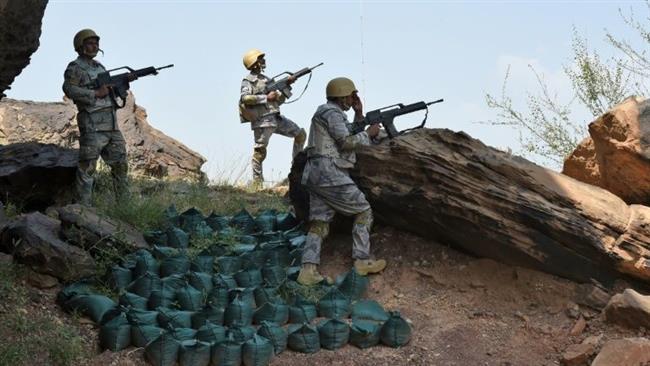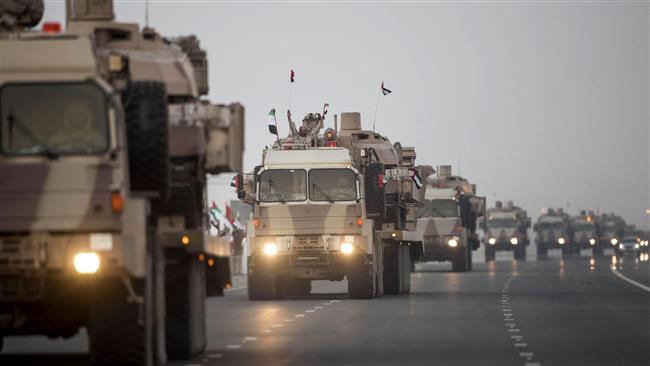Cash-strapped Saudi Arabia raises wages of forces fighting reluctantly in Yemen
Saudi Arabia, already economically challenged, has decided to pay out an extra 5,000 Saudi riyals (1,333 US dollars) monthly to the troops fighting on the front lines in the Saudi-led war on Yemen, where reports have drawn a dark picture of Saudi-led military personnel’s morale.
King Salman ordered the raise on Saturday. He was trying to compensate all state employees, almost a week after the country almost doubled gasoline prices and introduced a five-percent value added tax (VAT) on most goods and services.
Saudi Arabia started the war on Yemen in March 2015, hoping that with blunt force, it would be able to restore power to a former Yemeni regime that had been friendly to Riyadh in a matter of weeks. Some three years and over 13,600 Yemeni lives later, the Saudi regime has been unable to accomplish the objectives of its “Decisive Storm” operation.
Instead, and despite the coalition’s superior aggregate military power, Riyadh has been bogged down in a war against mostly tribal fighters with limited fighting equipment.
Even so, there have been reports that the Saudi-led forces are massively concerned about their safety. Officials from the United States, which assists the Saudi-led coalition, have admitted that incompetent Saudi pilots, fearing ground fire, have been flying their jets so high that they can’t deliver weapons accurately, causing even bigger civilian casualties.
The move by the Saudi king to raise allowances for the military personnel has now been seen as an incentive in monetary form — as is typical of the Saudi government — to keep the reluctant forces in the war zone.

Various international outlets, including The Financial Times and Bloomberg, meanwhile, have suggested that after falling short of its goals, Saudi Arabia has started pumping more money into the war.
The Financial Times wrote that retaliatory missile attacks by Yemen, especially the counterattack that targeted the al-Yamamah palace in Riyadh, had scared investors away from the kingdom, further straining Saudi Arabia financially.
This is while Saudi Crown Prince Mohammed bin Salman has hoped to lure foreign investors into the country.
Bloomberg said that continuation of the offensive indicated that it had been unsuccessful.
Col. Turki al-Malki, a spokesman for the Saudi-led coalition, said the Houthis had so far fired 87 missiles at different locations in Saudi Arabia.
The kingdom introduced the hike in prices and the VATs on Monday in a supposed attempt to kickstart its economy, reeling from falling oil prices and the costly war on Yemen, which has dragged on for almost three years. Crude prices tumbled last year after Saudi Arabia itself glutted the market.
Arrests in front of the royal palace
Last month, Saudi Arabia, whose economy contracted by 0.5 in 2016, cut the government subsidy on electricity supplies for the second time in two years, leading to a sharp rise in bills.
On Saturday, the Saudi government said 11 royals had been arrested after gathering in front of a palace in protest at the government cuts of their water and electricity subsidies, Sabq paper reported.
It said the arrestees were transferred to the al-Ha’ir medium-security prison south of the capital.
However, a well-known Saudi online activist, who goes by the nickname of @mujtahidd on Twitter, said the princes had been laid under arrest for protesting the apprehension of many of their kinsmen on the crown prince’s orders late last year.
Mohammed bin Salman has been arresting fellow princes in what has been portrayed as an “anti-corruption campaign” but is widely believed to be a purge of political opponents.
Hamas thanks Iran, Resistance Front following achievement of ceasefire in Gaza
'Capitulation': Israeli officials and media concede Gaza defeat as truce unfolds
'Gaza has won': Social media users react to ceasefire with mix of relief, joy
Iran seeks South Korea’s assistance for AI, fiber-optic projects
VIDEO | Iran's 'Eqtedar' (Power) maneuver
Israel hits HTS military target in Syria for 1st time since fall of Assad
VIDEO | Press TV's news headlines
Israel has slaughtered 13,000 students in Gaza, West Bank













 This makes it easy to access the Press TV website
This makes it easy to access the Press TV website